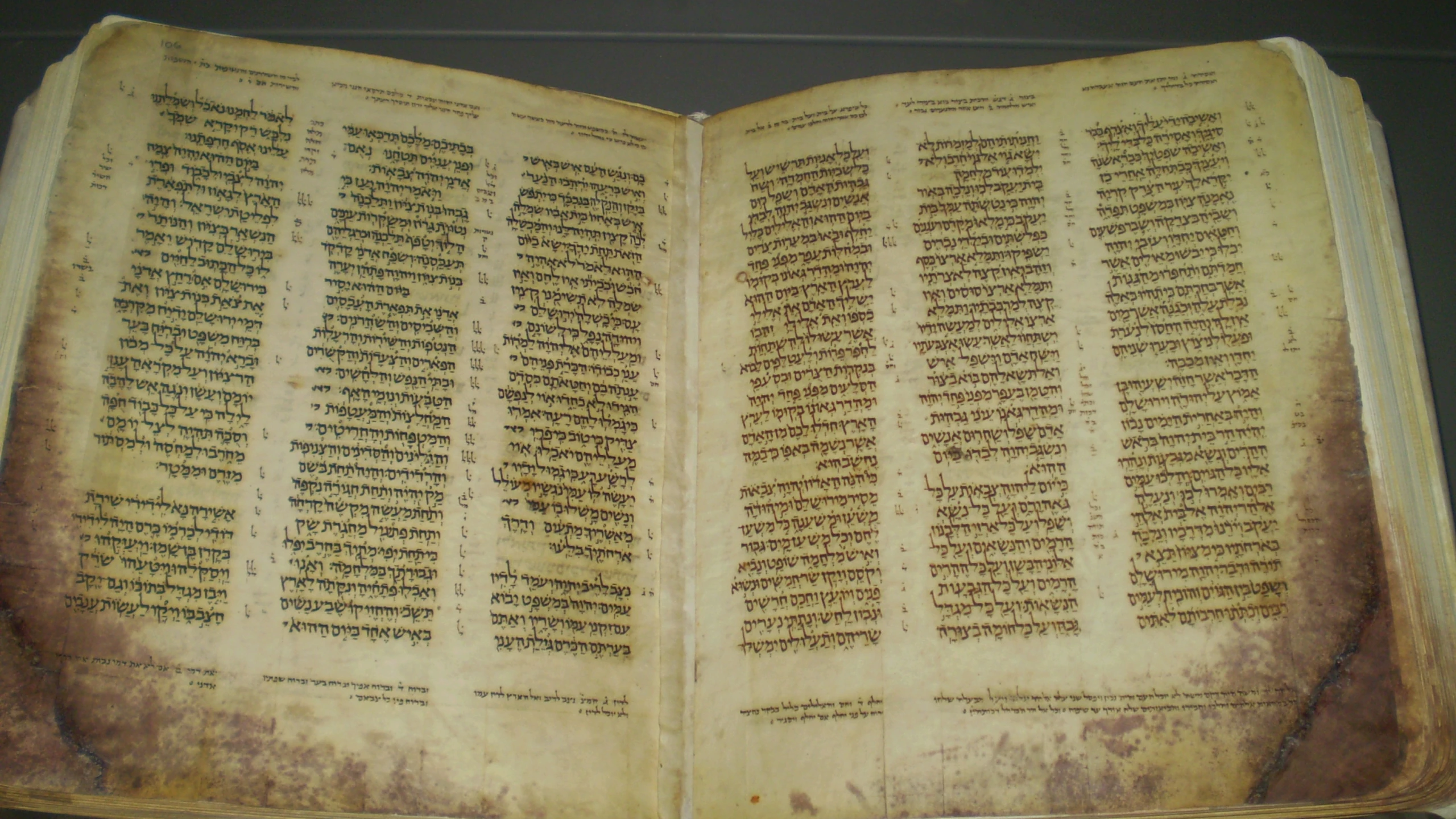The Mountain Over Your Head
Never Confuse Moods with Values
- February 9, 2012
- |
- 16 Sh'vat 5772
Rabbi YY Jacobson
5171 views
The Mountain Over Your Head
Never Confuse Moods with Values
Rabbi YY Jacobson
- February 9, 2012
A Doctor’s Advice
A woman accompanied her husband to the doctor's office. Following her husband’s checkup, the doctor called the wife into his office to speak with her privately. He said, "Your husband is suffering from a very severe stress disorder. If you don't do the following, your husband will surely deteriorate and die."
“Each morning," instructed the doctor, "fix him a healthy breakfast. Be pleasant at all times. For lunch make him a nutritious meal. For dinner prepare an especially nice meal for him. Have the dinner waiting for him on the table, hot, as he arrives home from work. Don't burden him with chores. Don't discuss your problems with him; it will only make his stress worse. No nagging is allowed. You must also compliment him at least five-six times a day, telling him how brilliant and talented he is. And most importantly, never disagree with him.”
"If you can do this for the next 10 months to a year," the doctor said, "I think your husband will regain his health completely."
On the way home, the husband asked his wife, "What did the doctor say?"
"He said you're going to die," she replied.The Proposal
There is an enigmatic Talmudic passage explaining a peculiar phrase in the Torah reading of shvauos, from the portion of Yisro: "They (the Jewish people) stood in the bottom of the (Sinai) mountain [1]."
What is the meaning of the words "in the bottom of the mountain"? The Talmud explains [2] that the Jews were actually standing inside the mountain. "G-d enveloped them with the mountain as though it was an upturned vat, and He said to them: 'If you accept the Torah, fine; if not, this will be your burial place.'"
The event at Sinai is viewed as the marriage ceremony between G-d and the Jewish people [3]. Imagine a groom, who on the day of his wedding, placed his bride under an elevator and declared: "If you marry me, great; if not, the elevator will come down on your head." How enduring can such a relationship be? Couldn't G-d have found a more "romantic" way to convince the "bride" to marry Him?
What is even more puzzling is the fact that according to the biblical narrative [4], the Jewish people had already expressed their willingness to accept the Torah before this event. Why was it necessary for G-d to coerce them into something they had already agreed upon [5]?
Let us present the explanation offered by one of the greatest spiritual masters of all time, the Baal Shem Tov [6].
Numb Days
There are days when we are emotionally in touch with our inner idealism, spirituality and G-dliness. At such times we are inspired to live deeply and to love deeply.
But then come the days when we feel estranged from our souls. We are emotionally numb, experiencing ourselves merely as self-centered and materialistic creatures seeking to satiate nothing more than our momentary cravings. We are simply not in the mood for our higher, refined aspirations. G-d does not appeal to us. At such times of spiritual alienation, we often succumb to mundane and selfish behavior. Since we feel disconnected, we act as though we are indeed disconnected.
This is a mistake. By G-d forcing the Jewish people to enter into the relationship—even though they had already agreed—He demonstrated to them the truth that their relationship was not based on the fact that they were consciously passionate about it. Instead, the relationship was inherent and essential to their very chemistry [7]. Man is an innately sacred and Divine creature. "Even when you are not in the mood of me," G-d was intimating, "our relationship is as strong as ever. You can act on it."
Yet you may still think, "Fine, I will behave, but let's face it, the relationship is not happening. It is all but dead."
So G-d says “no.” By placing the mountain on their heads at the moment of Revelation, during the profoundest moment of intimacy between G-d and his people, G-d was saying that a relationship inspired by the knowledge that this is the truth, though you may not feel it, is a genuine and authentic relationship. It is a real union. Though there is no passion, when you behave in a moral and sacred fashion knowing that this is who you really are, it is a true bond.
I don’t feel like spending time with my children right now. I do not feel like going to the wedding. I do it anyway. But I feel it is lifeless and devoid of meaning. So the Torah says: Not at all. It is real, authentic and valuable. What I feel or don’t is never the barometer of whether it is right or wrong.
Never confuse your moods with your values. I may not be in the mood of something, for 1000 different reasons. That does not diminish in the slightest my inner connection to it: it remains my value, my innate desire and commitment.
Rocky Moments
In the Jewish tradition, the marriage of each man and woman reflects the cosmic marriage between G-d and His people [8]. There are the days when we feel truly grateful for our spouses and experience deep love towards them. At such times we crave to give of ourselves to our spouses and make their lives happier.
But at other times we become cold and apathetic. We just want to do "our own thing" and simply are not in the mood of the relationship. Sometimes, a marriage goes through tough seasons.
In the majority of cases, it would be a sad error to act upon those feelings of detachment. For the Kabbalah teaches [9] that a wife and husband are essentially "two halves of a single soul." At their core, they are one. Thus, when a couple enters into marriage, it needs to recall what G-d reminded us on the day of His marriage: Whether we are in the mood of each other or not, we are married and we are one.
Such a commitment could save many marriages when they encounter rocky times. After all, it saved the marriage between G-d and the Jews.
[3]See, for example, Mishnah Taanis 26b; Shemos Rabah end of section 15.
[5]This question is raised among many of the Talmudic commentators. See Tosfos, Eitz Yosef, Pnei Yehoshua, Shabbos Shel Mi and BenYehoyada to Talmud Shabbos ibid. Midrash Tanchumah Noach section 3. Daas Zekeinim Mibbalei Hatosafos on Exodus 19:17. Maharal Tiferes Yisroel ch. 32, Gur Aryeh on Exodus ibid. and Or Chodash p. 45. Sources noted in Pardas Yosef to Exodus ibid.
[6]1698-1760. This idea was transcribed by his famed disciple, Rabbi Yaakov Yosef of Pulnah (Ben Poras Yosef Parshas Vayeishev. Cf. Nesiv Metzvosecah Nesiv HaTorah 1:28). For alternative explanations see referenced noted in previous footnote as well as in Torah Or Megilas Esther p. 96c; 118c.
[7]Cf. Tanya chapters 14, 18-19, 25, 28, 41, 44.
[8]See commentaries to Song of Songs. Maimonides' Laws of Teshuvah ch. 10.
- Comment
Class Summary:
Not in the Mood of Your Spouse? - Sometimes the Deepest Romance Can Emerge When You Have a Mountain Over Your Head
Dedicated by David and Eda Schottenstein in the loving memory of a young soul Alta Shula bas Yosef Yitzchak Swerdlov. And in the merit of Yetta Alta Shula, "Aliya," Schottenstein
A Doctor’s Advice
A woman accompanied her husband to the doctor's office. Following her husband’s checkup, the doctor called the wife into his office to speak with her privately. He said, "Your husband is suffering from a very severe stress disorder. If you don't do the following, your husband will surely deteriorate and die."
“Each morning," instructed the doctor, "fix him a healthy breakfast. Be pleasant at all times. For lunch make him a nutritious meal. For dinner prepare an especially nice meal for him. Have the dinner waiting for him on the table, hot, as he arrives home from work. Don't burden him with chores. Don't discuss your problems with him; it will only make his stress worse. No nagging is allowed. You must also compliment him at least five-six times a day, telling him how brilliant and talented he is. And most importantly, never disagree with him.”
"If you can do this for the next 10 months to a year," the doctor said, "I think your husband will regain his health completely."
On the way home, the husband asked his wife, "What did the doctor say?"
"He said you're going to die," she replied.
The Proposal
There is an enigmatic Talmudic passage explaining a peculiar phrase in the Torah reading of shvauos, from the portion of Yisro: "They (the Jewish people) stood in the bottom of the (Sinai) mountain [1]."
What is the meaning of the words "in the bottom of the mountain"? The Talmud explains [2] that the Jews were actually standing inside the mountain. "G-d enveloped them with the mountain as though it was an upturned vat, and He said to them: 'If you accept the Torah, fine; if not, this will be your burial place.'"
The event at Sinai is viewed as the marriage ceremony between G-d and the Jewish people [3]. Imagine a groom, who on the day of his wedding, placed his bride under an elevator and declared: "If you marry me, great; if not, the elevator will come down on your head." How enduring can such a relationship be? Couldn't G-d have found a more "romantic" way to convince the "bride" to marry Him?
What is even more puzzling is the fact that according to the biblical narrative [4], the Jewish people had already expressed their willingness to accept the Torah before this event. Why was it necessary for G-d to coerce them into something they had already agreed upon [5]?
Let us present the explanation offered by one of the greatest spiritual masters of all time, the Baal Shem Tov [6].
Numb Days
There are days when we are emotionally in touch with our inner idealism, spirituality and G-dliness. At such times we are inspired to live deeply and to love deeply.
But then come the days when we feel estranged from our souls. We are emotionally numb, experiencing ourselves merely as self-centered and materialistic creatures seeking to satiate nothing more than our momentary cravings. We are simply not in the mood for our higher, refined aspirations. G-d does not appeal to us. At such times of spiritual alienation, we often succumb to mundane and selfish behavior. Since we feel disconnected, we act as though we are indeed disconnected.
This is a mistake. By G-d forcing the Jewish people to enter into the relationship—even though they had already agreed—He demonstrated to them the truth that their relationship was not based on the fact that they were consciously passionate about it. Instead, the relationship was inherent and essential to their very chemistry [7]. Man is an innately sacred and Divine creature. "Even when you are not in the mood of me," G-d was intimating, "our relationship is as strong as ever. You can act on it."
Yet you may still think, "Fine, I will behave, but let's face it, the relationship is not happening. It is all but dead."
So G-d says “no.” By placing the mountain on their heads at the moment of Revelation, during the profoundest moment of intimacy between G-d and his people, G-d was saying that a relationship inspired by the knowledge that this is the truth, though you may not feel it, is a genuine and authentic relationship. It is a real union. Though there is no passion, when you behave in a moral and sacred fashion knowing that this is who you really are, it is a true bond.
I don’t feel like spending time with my children right now. I do not feel like going to the wedding. I do it anyway. But I feel it is lifeless and devoid of meaning. So the Torah says: Not at all. It is real, authentic and valuable. What I feel or don’t is never the barometer of whether it is right or wrong.
Never confuse your moods with your values. I may not be in the mood of something, for 1000 different reasons. That does not diminish in the slightest my inner connection to it: it remains my value, my innate desire and commitment.
Rocky Moments
In the Jewish tradition, the marriage of each man and woman reflects the cosmic marriage between G-d and His people [8]. There are the days when we feel truly grateful for our spouses and experience deep love towards them. At such times we crave to give of ourselves to our spouses and make their lives happier.
But at other times we become cold and apathetic. We just want to do "our own thing" and simply are not in the mood of the relationship. Sometimes, a marriage goes through tough seasons.
In the majority of cases, it would be a sad error to act upon those feelings of detachment. For the Kabbalah teaches [9] that a wife and husband are essentially "two halves of a single soul." At their core, they are one. Thus, when a couple enters into marriage, it needs to recall what G-d reminded us on the day of His marriage: Whether we are in the mood of each other or not, we are married and we are one.
Such a commitment could save many marriages when they encounter rocky times. After all, it saved the marriage between G-d and the Jews.
[3]See, for example, Mishnah Taanis 26b; Shemos Rabah end of section 15.
[5]This question is raised among many of the Talmudic commentators. See Tosfos, Eitz Yosef, Pnei Yehoshua, Shabbos Shel Mi and BenYehoyada to Talmud Shabbos ibid. Midrash Tanchumah Noach section 3. Daas Zekeinim Mibbalei Hatosafos on Exodus 19:17. Maharal Tiferes Yisroel ch. 32, Gur Aryeh on Exodus ibid. and Or Chodash p. 45. Sources noted in Pardas Yosef to Exodus ibid.
[6]1698-1760. This idea was transcribed by his famed disciple, Rabbi Yaakov Yosef of Pulnah (Ben Poras Yosef Parshas Vayeishev. Cf. Nesiv Metzvosecah Nesiv HaTorah 1:28). For alternative explanations see referenced noted in previous footnote as well as in Torah Or Megilas Esther p. 96c; 118c.
[7]Cf. Tanya chapters 14, 18-19, 25, 28, 41, 44.
[8]See commentaries to Song of Songs. Maimonides' Laws of Teshuvah ch. 10.
Essay Shavuos/Yisro
Rabbi YY Jacobson
- February 9, 2012
- |
- 16 Sh'vat 5772
- |
- 5171 views
The Mountain Over Your Head
Never Confuse Moods with Values
Rabbi YY Jacobson
- February 9, 2012
A Doctor’s Advice
A woman accompanied her husband to the doctor's office. Following her husband’s checkup, the doctor called the wife into his office to speak with her privately. He said, "Your husband is suffering from a very severe stress disorder. If you don't do the following, your husband will surely deteriorate and die."
“Each morning," instructed the doctor, "fix him a healthy breakfast. Be pleasant at all times. For lunch make him a nutritious meal. For dinner prepare an especially nice meal for him. Have the dinner waiting for him on the table, hot, as he arrives home from work. Don't burden him with chores. Don't discuss your problems with him; it will only make his stress worse. No nagging is allowed. You must also compliment him at least five-six times a day, telling him how brilliant and talented he is. And most importantly, never disagree with him.”
"If you can do this for the next 10 months to a year," the doctor said, "I think your husband will regain his health completely."
On the way home, the husband asked his wife, "What did the doctor say?"
"He said you're going to die," she replied.The Proposal
There is an enigmatic Talmudic passage explaining a peculiar phrase in the Torah reading of shvauos, from the portion of Yisro: "They (the Jewish people) stood in the bottom of the (Sinai) mountain [1]."
What is the meaning of the words "in the bottom of the mountain"? The Talmud explains [2] that the Jews were actually standing inside the mountain. "G-d enveloped them with the mountain as though it was an upturned vat, and He said to them: 'If you accept the Torah, fine; if not, this will be your burial place.'"
The event at Sinai is viewed as the marriage ceremony between G-d and the Jewish people [3]. Imagine a groom, who on the day of his wedding, placed his bride under an elevator and declared: "If you marry me, great; if not, the elevator will come down on your head." How enduring can such a relationship be? Couldn't G-d have found a more "romantic" way to convince the "bride" to marry Him?
What is even more puzzling is the fact that according to the biblical narrative [4], the Jewish people had already expressed their willingness to accept the Torah before this event. Why was it necessary for G-d to coerce them into something they had already agreed upon [5]?
Let us present the explanation offered by one of the greatest spiritual masters of all time, the Baal Shem Tov [6].
Numb Days
There are days when we are emotionally in touch with our inner idealism, spirituality and G-dliness. At such times we are inspired to live deeply and to love deeply.
But then come the days when we feel estranged from our souls. We are emotionally numb, experiencing ourselves merely as self-centered and materialistic creatures seeking to satiate nothing more than our momentary cravings. We are simply not in the mood for our higher, refined aspirations. G-d does not appeal to us. At such times of spiritual alienation, we often succumb to mundane and selfish behavior. Since we feel disconnected, we act as though we are indeed disconnected.
This is a mistake. By G-d forcing the Jewish people to enter into the relationship—even though they had already agreed—He demonstrated to them the truth that their relationship was not based on the fact that they were consciously passionate about it. Instead, the relationship was inherent and essential to their very chemistry [7]. Man is an innately sacred and Divine creature. "Even when you are not in the mood of me," G-d was intimating, "our relationship is as strong as ever. You can act on it."
Yet you may still think, "Fine, I will behave, but let's face it, the relationship is not happening. It is all but dead."
So G-d says “no.” By placing the mountain on their heads at the moment of Revelation, during the profoundest moment of intimacy between G-d and his people, G-d was saying that a relationship inspired by the knowledge that this is the truth, though you may not feel it, is a genuine and authentic relationship. It is a real union. Though there is no passion, when you behave in a moral and sacred fashion knowing that this is who you really are, it is a true bond.
I don’t feel like spending time with my children right now. I do not feel like going to the wedding. I do it anyway. But I feel it is lifeless and devoid of meaning. So the Torah says: Not at all. It is real, authentic and valuable. What I feel or don’t is never the barometer of whether it is right or wrong.
Never confuse your moods with your values. I may not be in the mood of something, for 1000 different reasons. That does not diminish in the slightest my inner connection to it: it remains my value, my innate desire and commitment.
Rocky Moments
In the Jewish tradition, the marriage of each man and woman reflects the cosmic marriage between G-d and His people [8]. There are the days when we feel truly grateful for our spouses and experience deep love towards them. At such times we crave to give of ourselves to our spouses and make their lives happier.
But at other times we become cold and apathetic. We just want to do "our own thing" and simply are not in the mood of the relationship. Sometimes, a marriage goes through tough seasons.
In the majority of cases, it would be a sad error to act upon those feelings of detachment. For the Kabbalah teaches [9] that a wife and husband are essentially "two halves of a single soul." At their core, they are one. Thus, when a couple enters into marriage, it needs to recall what G-d reminded us on the day of His marriage: Whether we are in the mood of each other or not, we are married and we are one.
Such a commitment could save many marriages when they encounter rocky times. After all, it saved the marriage between G-d and the Jews.
[3]See, for example, Mishnah Taanis 26b; Shemos Rabah end of section 15.
[5]This question is raised among many of the Talmudic commentators. See Tosfos, Eitz Yosef, Pnei Yehoshua, Shabbos Shel Mi and BenYehoyada to Talmud Shabbos ibid. Midrash Tanchumah Noach section 3. Daas Zekeinim Mibbalei Hatosafos on Exodus 19:17. Maharal Tiferes Yisroel ch. 32, Gur Aryeh on Exodus ibid. and Or Chodash p. 45. Sources noted in Pardas Yosef to Exodus ibid.
[6]1698-1760. This idea was transcribed by his famed disciple, Rabbi Yaakov Yosef of Pulnah (Ben Poras Yosef Parshas Vayeishev. Cf. Nesiv Metzvosecah Nesiv HaTorah 1:28). For alternative explanations see referenced noted in previous footnote as well as in Torah Or Megilas Esther p. 96c; 118c.
[7]Cf. Tanya chapters 14, 18-19, 25, 28, 41, 44.
[8]See commentaries to Song of Songs. Maimonides' Laws of Teshuvah ch. 10.
- Comment
Dedicated by David and Eda Schottenstein in the loving memory of a young soul Alta Shula bas Yosef Yitzchak Swerdlov. And in the merit of Yetta Alta Shula, "Aliya," Schottenstein
Class Summary:
Not in the Mood of Your Spouse? - Sometimes the Deepest Romance Can Emerge When You Have a Mountain Over Your Head
Related Classes
Please help us continue our work
Sign up to receive latest content by Rabbi YY
Join our WhatsApp Community
Join our WhatsApp Community




.webp)





Please leave your comment below!
Sara -5 years ago
Wow!!! Thanks so much! So meaningfu.
Reply to this comment.Flag this comment.
Leah -5 years ago
May G-d's wedding anniversary gift to His Bride be the passionate revelation of His Presence and the arrival Moshiach !
Reply to this comment.Flag this comment.
Yaakov Schroeder -5 years ago
Is it possible that what may be considered a metaphor........God placing Mt. Sinai over our heads and offfering us a choice between betrothal to Him and accepting His Torah, or burial under/within Mt. Sinai........is no metaphor at all?
God created the world during the six days of Creation, and has continued creating it since. All this world, including each of us, He continues to create at every moment. That God keeps the world in existence, including each of us at every moment, is very difficult to internalize.
Awareness of being subject to such mind-numbing power alters my perception of my relationship to God, who creates me as I write this and you as you read this. Seeing that His power over me is infinite reduces my experience of choice. I don't get to tell Him how or how long to fashion me. That is His sole province. Likewise was His sole province at Mt. Sinai when He presented His Torah and the choice whether to accept its restrictions or die.
"Accept this Torah or die" is a window into the nature of this reality God creates, and how little free choice we have. Rabbi Lipskar [Shul of Bal Harbour] said we have free choice but not much of it. Human perception is the reverse; we think we have more free choice than we do. That is a good thing. It shows us how valuable it is. Stroke victims know this all too well.
"Accept this Torah or die" was God unequivocally expressing absolute sovereignty over all creation.
Reply to this comment.Flag this comment.
Leah -5 years ago
We have more than free choice. We have an obligation to be a good partner. G-d's soverienty is real, yes, but He chooses to have a partner in creation and a home. We are the Homemaker. It's quite a job.
Reply to this comment.Flag this comment.
Yaakov -5 years ago
It's a perception management problem.
Reply to this comment.Flag this comment.